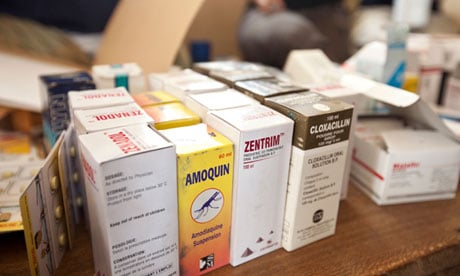
China rejects claims of producing fake medicine for Africa
China has denied allegations that it has been exporting huge amounts of counterfeit medication to Africa, threatening public health in east Africa, five days after the Guardian published a front page exposé on the phenomenon.The official Xinhua news agency said a foreign ministry spokeswoman rejected the accusation, but “called on foreign traders to procure medicines from legitimate companies through standardised channels”.”Spokeswoman Hua Chunying said at a daily press briefing that the accusations are unfounded, noting that co-operation between the Chinese government and African countries has played an important role in improving the healthcare environment for people in Africa,” Xinhua reported on Thursday night.The Guardian article cited experts and NGO reports as saying that up to a third of anti-malarial drugs in Uganda and Tanzania may be fake or substandard, and that the majority of them are manufactured in China and India. The drugs look identical to real ones, and can only be distinguished with lab testing. Aside from malaria drugs, analysis of antibiotics and contraceptives have also turned up fakes. “Some pills contain no active ingredients, some are partial strength and some the wrong formulation entirely,” said the article.The fake medications have led to deaths, prolonged illness and increased drug resistance in areas of east Africa, the article said.A Chinese foreign ministry official refused to specify which parts of the Guardian article the ministry disputed. She said that the repudiations were aimed at the question of counterfeit drug exports, not the article specifically. Counterfeit drugs are an endemic and long-running issue in China. According to official statements, Chinese police seized £113m worth of fake pharmaceuticals this July alone and £19m worth last November. Many ingredients were found to be harmful or toxic.According to Xinhua, the foreign ministry spokeswoman “stressed that China always attaches great importance to drug safety and resolutely cracks down on the manufacture and sale of counterfeit drugs” and defended Beijing’s record of providing healthcare aid to African countries.
http://www.guardian.co.uk/world/2012/dec/28/china-rejects-fake-medicine-africa
Lear More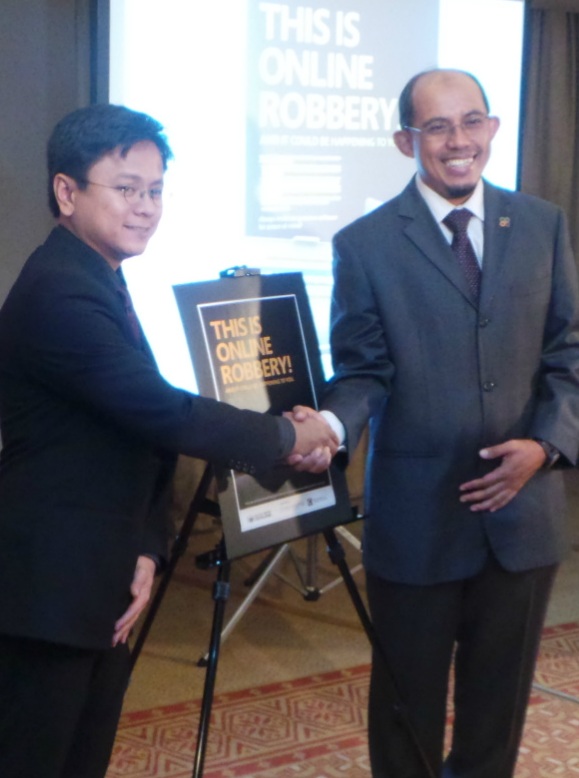
63% of counterfeits infected with malware, claims Microsoft
MICROSOFT Corp has unveiled the results of a South-East Asia internal computer security study which found that 63% of counterfeit software DVDs and laptop computers with illegal copies of Windows and other software had high-risk malware infections and viruses.A staggering 85% of the sampled DVDs and 49% of sampled computers were found to contain malware, the company said in a statement.The analysis was conducted by Microsoft’s Security Forensics team on albeit only 118 samples purchased from resellers in Indonesia, Malaysia, the Philippines, Thailand, and Vietnam.In total, this preliminary test sample found nearly 2,000 instances of malware – 403 of them unique – including highly dangerous backdoors, hijackers, droppers, bots, crackers, password stealers, and trojans.The research further revealed that in 77% of the computers examined, Windows Update had been disabled or re-routed to third-party services. With Windows Update disabled, computer systems bypass genuine software checks and are also denied access to critical security updates, leaving them defenseless against malicious cyber-attacks, virus infections, and hacking.More interestingly is a new trend that was discovered during the course of the study – 44% of the sampled, seemingly new laptop computers have had the original hard drives swapped with malware-infected, recycled drives installed with pirated software.
Cybercriminals use malware for a range of invasive activities generating illegal profit – from stealing consumers’ banking and credit card information, to spamming their e-mail and social media contacts with fraudulent requests for charitable donations or bogus offers (e.g., for counterfeit prescription drugs).Increasingly, these activities are conducted by or at the direction of organized, for-profit criminal enterprises.For businesses, the risks associated with using malware-infected, pirated software include low IT productivity, critical system failures and disruptions of service, and theft of confidential company data leading to severe financial loss and reputational harm.
“This study clearly shows that using counterfeit software is a dangerous proposition,” said Dr Dzahar Mansor, national technology officer at Microsoft Malaysia.
“Pirated software is a breeding ground for cybercrime, and the cost of using it is potentially much higher than the price of buying genuine in the first place,” he added.
According to the 2012 Norton Cybercrime Report, the global consumer cost of cybercrime is US$100 billion annually, with an average per-victim impact of US$197.
“Using a PC with counterfeit software is like moving into a high-crime neighborhood and leaving your doors open – it’s incredibly risky,” said Zahri Hj. Yunos(pic above, left), acting chief executive officer of CyberSecurity Malaysia (CSM), an agency under Malaysia’s Ministry of Science, Technology and Innovation.
“People with counterfeit software have no guarantee that their sensitive data, activities and communications will be safe from cybercriminals that intend to do harm. As the results of this study show, the danger of counterfeit is real and consumers should insist on genuine software when purchasing a new PC,” he added.
Microsoft advises consumers to take the following steps to avoid the inadvertent purchase of counterfeit software:
- Always ask for genuine software.
- Buy from a trusted reseller and avoid deals that seem “too good to be true”.
- Ensure all software purchases come in their original packaging.
- When buying a PC with Windows, look for the genuine label and Certificate of Authenticity that Microsoft requires be affixed to all PCs on which Windows is pre-installed. As a further check after purchase, log on tohttp://www.howtotell.com/to confirm the label is authentic.
Customers who suspect they’ve received pirated or counterfeit software are encouraged to report it atwww.microsoft.com/piracy. Since 2007, the company has received more than 10,000 piracy reports from within South-East Asia – many from people who bought a name-brand PC, paying more money to get “the real thing,” but ending up with far greater risk and liability at the hands of counterfeiters.
Microsoft said it is currently expanding its research in South-East Asia to include an even larger sample of PCs and DVDs containing pirated software, and expects to publish the full study results and analysis during the first quarter of 2013.
Lear More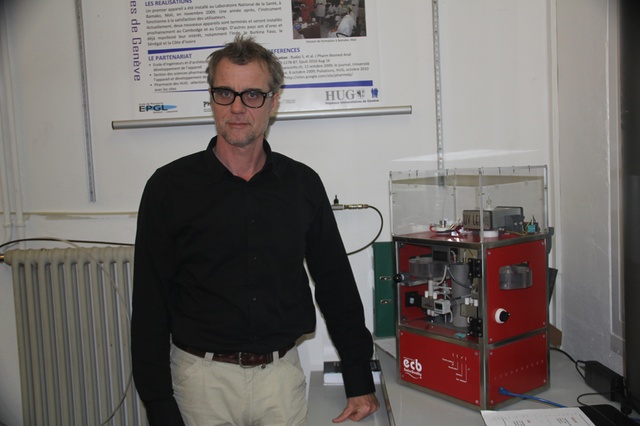
Swiss technology battles fake drugs
Counterfeit drugs have become one of the main health problems in developing countries. A device developed by three Swiss universities that identifies fake drugs could save the lives of hundreds of thousands of people worldwide.“The phenomenon of fake drugs reached catastrophic dimensions a long time ago for the inhabitants of the world’s poorest regions,” said Claude Rohrbasser, retired head of industrial technology at the College of Engineering and Architecture of Fribourg.“So several years ago we said to ourselves that with our knowledge and technological possibilities, we could do something to help these people.”The Fribourg institute joined forces with the Geneva University Hospitals and Geneva-Lausanne School of Pharmacy to develop a low-cost system that identifies whether a drug is real or fake in just a few minutes.The prototype of the ECB (budget capillary electrophoresis) was unveiled in 2008.“The devices on the market cost at least SFr100,000 ($110,000). The ECB is only SFr10,000. For this amount we can find sponsors, whereas for SFr100,000 it would be pretty tricky,” said Rohrbasser, now president of Pharmelp, an association created by the initiative’s promoters to make the ECB available in developing countries.
Simple and effective
Despite its complicated name, the ECB represents probably the easiest – and at the same time most efficient – solution yet developed to detect and measure organic compounds, as well as drugs, proteins and amino acids.The ECB enables the analysis of 80 per cent of the 200 core medicines identified by the World Health Organization (WHO).“Our aim was to develop an instrument that was extremely robust and as simple as possible from a functional point of view. This was to reduce the problem of a lack of spare parts and facilitate the training of staff in the countries where it would be used,” said Serge Rudaz, associate professor at Geneva University’s School of Pharmaceutical Sciences.Another advantage of the ECB is that it uses a minimum dose of solvent – barely a millionth of a litre – per analysis.“In recent years, some solvents necessary for this analysis have gone off the market or have undergone major price increases, to the point of becoming unaffordable for health operators in developing countries,” Rudaz said.
· Counterfeited medicines
According to the World Health Organization (WHO), less than 20 per cent of counterfeited medicines are comparable to the original product.In more than 80 per cent of cases the counterfeited medicines do not correspond to the information in the package inserts, which can severely endanger patients’ health.Thirty-two per cent of seriously altered mediciations don’t contain any of the active ingredient the medicine is supposed to contain, in 21 per cent the active ingredient differs from the original substance, in 20 per cent there is too little of the active ingredient, and in 8 per cent there are impurities in the drug.
· Electrical pulse
The analysis takes just 20 minutes on average. First of all the drug is solubilised with water. A small quantity of the substance is set in motion by an electrical pulse (hence the name electrophoresis), then moves along a tube thinner than a hair (hence capillary).
Using ultraviolet rays, the device measures the duration of the drug’s journey, which is recorded on a normal laptop computer.
“The ECB can’t identify the medicinal composition – it verifies whether this duration corresponds to that of the original product. Each drug has its own charge and thus moves at a different speed,” Rudaz explained.To date, the institutes have produced around ten ECB devices. The first three are already being used by the national health laboratory in Bamako, Mali, by Dakar University in Senegal and by the health authorities in Phnom Penh, Cambodia.Other projects are planned in Congo, Ghana and the Ivory Coast.
· Kidney problems
In these countries, a high percentage of drugs in circulation are counterfeit. In the majority of cases they are completely or partially lacking in the active ingredient listed in the packaging.According to the WHO, these fake drugs are responsible for the deaths of hundreds of thousands of people a year around the world, including 200,000 people with malaria.What’s more, for several years increasing numbers of impure drugs have been circulating, coming mostly from Asia.“Over the long term, these attack the kidneys – we’re noticing more and more patients in poor countries who need dialysis. The consequences are terrible, given the meagre means available,” Rohrbasser said.“Two years ago I visited the dialysis centre of the hospital in Bamako. There were ten or so patients lined up on beds. The head doctor told me they would die within a week because there weren’t any more filters for dialysis. This is another aspect of the problem of fake drugs.”
· Official challenges
The trafficking of these drugs is tied to the inadequacy of health networks in poorer countries, above all outside the main inhabited centres. Many people get the drugs from travelling salesmen, who move from village to village.“You’ve also got to bear in mind the tight financial circumstances. In many African countries people will normally buy only one or two pills at a time. And often they’ll do this at market, where prices are lower than in pharmacies and hospitals,” Rohrbasser said.But the official sales channels aren’t without problems either. Political instability and war – as is the case currently in Mali – often obstruct the already precarious control measures for the drugs.“But our aim is not to do the job of the police or customs – rather it’s to make available to the authorities, to hospitals and to universities an instrument which can identify fake products,” he said.This pragmatism is shared by Serge Rudaz. “There’s no way we can solve the problem of counterfeiting in the countries with which we’re working. But our presence bears witness to the interest of our universities and of Switzerland in tackling the serious problems [these countries] face.”
http://www.swissinfo.ch/eng/science_technology/Swiss_technology_battles_fake_drugs.html?cid=34595272
Lear MoreBuying cheaper counterfeit products for holidays can have high costs Federal agents have come across fake contact lenses, counterfeit prescription pills and software that can steal your identity
Buying knockoff purses or piratedDVDsmay seem harmless for some holiday shoppers, but money spent on counterfeit items can end up funding organized crime in the U.S. and around the world. And the products themselves can mess up your computers and steal your identity.TheUnited Nationscalls counterfeiting and piracy of intellectual property a “plague” that has exploded globally in the past few years, and federal agencies are stepping up their efforts to combat it because of the threats it poses to consumers, domestic security and the nation’s economy.The U.N. estimates counterfeit goods generate $250 billion annually for criminal organizations.Locally, the Orlando office ofU.S. Immigration and Customs Enforcementoffice has targeted flea markets and mail facilities to intercept everything from fake contact lenses to software that can wipe your hard drive clean, according to Homeland Security officials.”You are taking a real risk when you buy these items,” said ICE Special Agent in Charge Mark Garrand. “It’s beyond purses and scarves. We want consumers to be aware when they shop online that if it seems to good to be true, it probably is.” Nationally, the number of counterfeiting-related arrests and seizures has quadrupled since 2009, data from the government’s Intellectual Property Rights Coordination Center show.
Federal officials seized more than 130 website domains during a coordinated enforcement operation before Cyber Mondaythis year because they were selling pirated goods, said Carissa Cutrell, an ICE spokeswoman. Orlando businessman Dale Borders’ website was one of several targeted because it offers the “most sought after items at the lowest possible prices.”Borders sold counterfeit copies of Beach body’s “P90X” exercise DVDs he imported from overseas, complete with a forgery of the company’s trademark on the box, federal documents allege. Counterfeit items like these have been known to destroy personal computers and send personal information to remote computers that record online activity. Beach body shut down Borders’ website three times, but it reappeared, said Jonathan Gelfand, chief legal officer and senior vice president of business development for Beach body.”It’s a big cat-and-mouse game,” Gelfand, adding that the company found evidence factories in China were buying the exercise program and producing duplicates in bulk. “Unfortunately a lot of people think [piracy] is a victimless crime, but it directly impacts how we hire, our creativity and our charity work.”In 2011, Customs and Border Patrol agents in Cleveland seized scores of parcels addressed to Borders that contained P90X, Zumba and Disney DVDs. Borders surrendered the merchandise to authorities and said he had no other orders pending when they confronted him at his Central Florida home. But three days after the interview, agents seized two more boxes destined for Borders’ home that were labeled “Teaching materials” and “Learning materials.””Honestly, they know what they’re doing,” Garrand said of counterfeit sellers. “They have huge profit margin, and they don’t hide it.”Borders was found to have more than 2,200 boxed sets of the DVDs. Beach body charges about $120 to $330 in separate payments per boxed set, depending on the type of kit.Gelfand said companies such as his spend a fortune in court and investigative costs to stop criminals, and it cuts deeply into Beachbody’s profits — about $80 million in losses, he said. Borders pleaded guilty to trafficking counterfeit merchandise in November and faces a maximum of 10 years and $2 million in fines when sentenced.Gelfand said he and his counterparts are lobbying Congressto increase penalties for counterfeiters, but they have little power in foreign countries where the products originate.
Lear MoreBar coding on pharma items packaging may be postponed
Industry seeks more time to implement govt directive on bar coding The government is set to postpone compulsory bar coding on secondary packaging of pharmaceutical products to April 1 next year, as against an initial preposition of January 1, 2013 deadline.Bar coding medicines meant for export has been postponed given the stringent opposition by industry bodies representing the pharma sector. Industry has conveyed that it needs more time to be able to implement bar coding.To prevent menace of spurious, sub-standard and counterfeit drugs passed off in the international markets as Indian made medicines, commerce ministry has mooted use of technology to trace pharma products from their point of origin. Bar codes on pharmaceutical exports at all levels of packaging will reduce chances of counterfeit drugs being exported from India.For bar coding, exporters will have to register their products with the importing country and take necessary approvals from their regulators and comply with the norms. Implementation of bar code will require them to make changes in their registration that will involve committing a time line of at least a year.“We have received requests from the industry for more time in order to adapt to new rules. We have decided to make it compulsory beginning April 1,” said an official involved with pharmaceutical exports.Pharmaceutical Export Promotion Council of India (Pharmexcil) had also written to commerce ministry seeking an extension. After several meetings at inter-ministerial level, it has been decided to give further time to industry to adapt to new rules.As per the commerce ministry’s earlier notification, bar coding on secondary level packaging was to be implemented in the country for the exporters with effect from January 1, 2013.The commerce ministry has already implemented the first phase of bar coding on pharma exports under which the trace and track technology has been made compulsory for tertiary level packaging from October 1 last year. Tertiary level of packaging is when packed products are put into bigger cases and cartons. Secondary level is at which primary packages such as tablet strips are packed. Government is looking at implementing bar coding on primary packaging from July 1 next year.“The industry will need more time, specially small and medium enterprises. We also have to see requirements of importing country. The packaging and labelling will have to be changed accordingly,” said an official of Indian Drug Manufacturers Association (IDMA).
Lear More
FDA Warns Doctors of Counterfeit Botox
WASHINGTON (AP) – Federal regulators have warned more than 350 medical practices that Botox they may have received from a Canadian supplier is unapproved and could be counterfeit or unsafe.The Food and Drug Administration said in a letter sent last month, a letter released publicly last week, that batches of the wrinkle treatment shipped by suppliers owned by pharmacy Canada Drugs have not been approved by the FDA and that the agency cannot assure their effectiveness or their safety.The FDA said Canada Drugs was previously tied to shipping unapproved and counterfeit cancer drugs.The agency warned doctors about buying drugs from sources other than licensed U.S. pharmacies. It is the fifth warning the agency has made this year about foreign suppliers providing unapproved drugs.In February, the agency warned 19 medical practices that they had received a counterfeit version of the cancer drug Avastin. On three more occasions the FDA issued similar warnings about counterfeit Avastin and Altuzan, another brand name for the same drug. The alerts were also primarily targeted at drugs distributed by Canada Drugs.A request for comment from the drug distributor was not immediately returned.Drug shortages increased the financial incentives for some pharmacies to provide counterfeit or illegally imported drugs. The drugs subject to warnings have all been injectable treatments typically distributed through medical practices and not directly to patients.In October, the FDA ordered operators of about 4,100 websites to immediately stop selling unapproved medications to U.S. consumers. The vast majority of those sites were operated by Canada Drugs. The site was still operating Friday.Genuine Botox is made by Allergan Inc., based in Irvine, Calif. Avastin is made by Roche Holding AG’s Genentech unit.
Lear More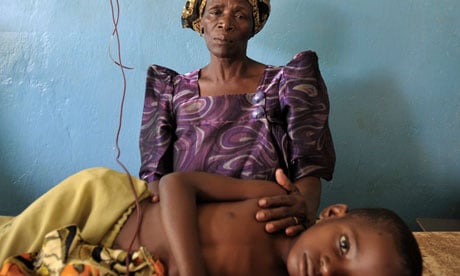
Counterfeit medicine from Asia threatens lives in Africa
International health experts are warning of a mounting health crisis in parts ofAfricabecause of an influx of counterfeit medicine from Asia that is playing havoc with the treatment of diseases such as malaria. Porous borders in Africa coupled with indifferent oversight inChinaare combining to turn the continent and its pressing health problems into a free-for-all for maverick manufacturers, some of whom are producing pills with no active ingredients at all.Precise data is hard to track down because of the informal nature of African health systems. But several recentstudieswarnthat as many as one-third of malaria drugs inUgandaandTanzaniaare fake or substandard, with most believed to originate in China orIndia.Apart from the lives lost, there are additional concerns about drug resistance building in east Africa, experts say. “It’s a crisis any time someone dies,” Nick White, who chairs the Wellcome Trust’s south-east Asia major overseas programmes and the WorldWide Antimalarial Resistance Network (Wwarn). “It’s a massive problem that people have simply ignored. It’s not like a boil that’s beginning to burst because it’s been a problem for a long time. What has happened is we are beginning to recognise it more.”Laurie Garett, senior fellow for global health at the US Council on Foreign Relations, said: “Nobody has a head count – or a body count – on numbers of Africans that have died as a result. But China’s role certainly has been dreadful.”David Nahamya, chief drug inspector for the Ugandan national drug authority, said: “What we are told is this, if someone wants to counterfeit a drug, they just take the package to China and they can make it in thousands. You have seen how they make it there. They can copy anything.”· An increasing list of studies and surveys about fake, counterfeit and substandard drugs has emerged in recent years, but because of deeply entrenched interests from all sides – governments, NGOs and pharmaceutical companies – there has been great reluctance to call the scourge of killer medications in Africa and elsewhere a crisis.This is despite the fact that everything from life-saving Aids medication to emergency contraception are being copied, faked and made with shoddy components on a huge scale.Patrick Lukulay, vice president of the US Pharmacopeial Convention’s global health impact programmes, said it was no secret that the majority of dangerous medications came from China and India, as those countries had the world’s largest production bases for both active ingredients and finished drugs.While India has stepped up oversight, “China is only now just catching on”, he added.Though it may seem like an immense amount of trouble to counterfeit a £3 packet of malaria pills, Lulukay noted that the global trade was estimated at £46bn a year. Counterfeiters know their markets well and target medications accordingly. Efforts to combat the activity are in their infancy.”If you want to be efficient in fighting it, you have to have a very strong regulatory authority, very strong collaborations, very good distribution networks and good co-operation between governments,” said Sabine Kopp, who manages the anti-counterfeiting and medicines quality assurance programmes at theWorld Health Organisation.As yet, none of those components are in place and counterfeiters, apparently unconcerned with harming sick people in developing countries, continue making huge profits.It is a loss to global aid organisations, as well, said Dr Nick White. “Think of the hundreds of millions, if not billions, you spend on pills to help people in poor countries,” he said. “It’s bonkers not to make sure they’re authentic and instead people are ending up with shoddy pills from China.”
http://www.guardian.co.uk/world/2012/dec/23/africa-counterfeit-medicines-trade
Lear MoreTanzania Bureau of Standards seizes 330 boxes of counterfeit condoms
Tanzania Bureau of Standards established in a prompt inspection in various parts ofDar es Salaamthat the 138,815 million US Dollars (about 220m/-) condoms branded ‘Melt Me’ from India are already on the market. During the inspection one pharmacy at Manzese was found selling the substandard condoms. They were also on sell at the Mabibo Hostel in Kinondoni District where some people admitted to have been using the brand for some time now. According to TBS, the consignment arrived in the country in August this year. Destination Inspection (DI) for the said load was conducted at theDar es SalaamPort and samples taken to TBS Laboratories for testing as importation procedures require. Speaking to reporters, TBS Acting Director General Leandri Kinabo, said the condoms consisting of four different lots failed the lab tests and that procedures were underway to re-export the haul to the country of origin. He said TBS inspectors established during the market surveillance which was conducted shortly after the seizure of the consignment, that there were other four different substandard lots of ‘Melt Me’ condoms already supplied in the market. He alerted the general public not to use ‘Melt Me’ condoms since they are sub standard thus can’t serve the intended purpose of protecting users against sexually transmitted diseases including HIV/AIDS. Mr Kinabo said TBS was working with the police to establish how such consignments reached the market and those found selling them would be taken to task. He urged the public to only use four certified condoms — Salama Condoms, Salama bomba Condoms, Dume Condom and Blue Denin Condoms. TBS Acting Director of Quality Management, Mr Lazaro Msasalaga, told the ‘Daily News on Saturday’ that the ‘Melt Me’ condoms failed lab water test, package seal and air inflation. “Dealers and suppliers are to make sure they sell products certified by TBS short of that not only they sabotage the country’s economy, but they also endanger the lives of their customers,” he stressed.
Lear MoreSix people were arrested and fake goods worth £250,000 were seized as police swooped on a Glasgow market on Saturday
Officers from London Road police station led the joint operation targeting sellers of counterfeit goods at the Barras market in the city’s east end.Among the items seized were clothing and bags bearing brand names including Adidas, Armani, Calvin Klein, Jimmy Choo and Louis Vuitton, police said. DVDs, cigarettes, perfumes and jewellery were also taken in evidence.Five men and one woman have been arrested in connection with alleged offences under the Copyright, Designs and Patents Act. Police will now pursue restraining their assets under the Proceeds of Crime Act.Detective Inspector Allan Burton said: “The sale of counterfeit goods is estimated to cost the economy over £10m a year in Scotland.”Strathclyde Police actively target those involved in serious and organised crime and by working together with our partner agencies, we can successfully disrupt those involved in illegal activities. Selling counterfeit goods is not only a crime, but often controlled by organised crime networks as a means of funding their activities.”We will continue to focus on such groups and would urge anyone with information on those involved in the counterfeit trade to contact their local police office or Crimestoppers in the strictest confidence.”
Lear More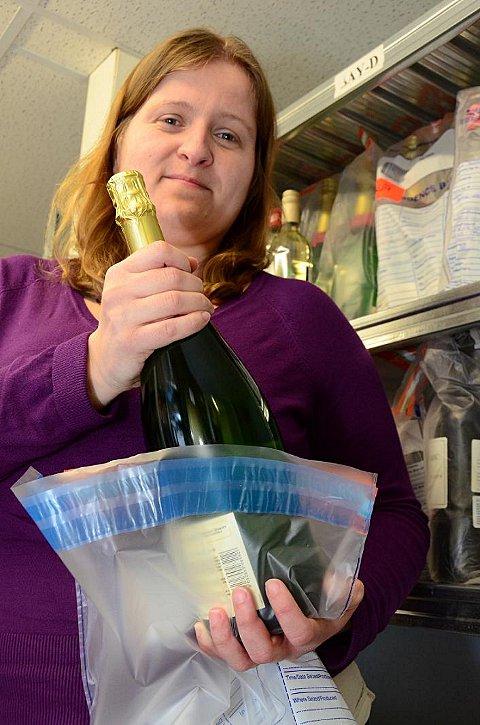
Counterfeit booze seized in Wycombe
Trading standards officers swooped on 18 shops across Buckinghamshire and seized counterfeit and ‘grey import’ alcohol from four of them. Their action was part of a joint operation with 10 other local authorities in south east England, that targeted 246 shops. Seizures were made at 19 shops overall. One of the shops where the booze was seized was in High Wycombe. Officers have this week issued a warning to festive season shoppers to be alert to counterfeit alcohol on the market. Gina Green, Buckinghamshire County Council Trading Standards Team Leader, said: “Bootleg booze makers usually add methanol because it’s clear and odourless. But after a few hours it can induce severe stomach ache, dizziness, blurred vision, breathing difficulties, and coma. What’s more, these concoctions are often created in very unhygienic conditions.”Gina said that although it is not easy for people to identify counterfeits on the shelves, once opened the smell or taste could give it away. With ‘grey imports’, customers should look for wonky labels and tell-tale excess glue, and also compare the fill levels of bottles on the shelf.Martin Phillips, cabinet member for community engagement, said: “We need to be particularly vigilant around the festive season and I have the greatest confidence in our Trading Standards teams who act speedily in their fight against counterfeits that could be dangerous to our residents.”Shops from which the bottles of counterfeit Champagne, vodka and wine were seized were in Denham, High Wycombe and Buckingham. Gina said her team was advising traders to ensure they ordered stock from trustworthy sources.
http://www.bucksfreepress.co.uk/news/10123092.Counterfeit_booze_seized_in_Wycombe/?ref=rss
Lear More


